The five start-ups racing to become Australia’s next unicorn company in 2022
Money is cheap and investors are keen. Here are the top five local tech start-ups most likely to crack the $1bn mark this year.
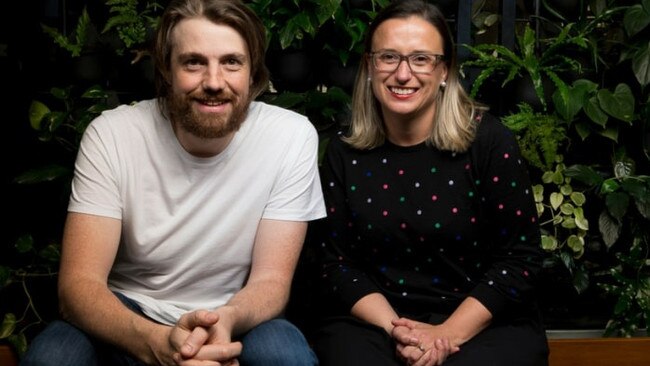
The last year was a banner one for Australia’s start-ups, with the nation generating a record number of unicorns – privately owned billion dollar tech companies – and 2022 already looks even more fruitful.
With money still cheap and venture capital investors looking to place lucrative big bets on the next Atlassian and Canva, here are the most likely local, high-growth, tech start-ups set to crack ‘unicorn’ status over the next 12 months.
Seer Medical
Capitalising on rampant interest in MedTech, bio-engineering and health more broadly, Melbourne-based start-up Seer Medical has doubled its growth every year and is looking to ramp up that momentum in 2022.
The five-year-old company employs nearly 200 staff, and is generating more than $10m in revenue annually.
Its chief medical officer Mark Cook, is also chair of medicine at the University of Melbourne.
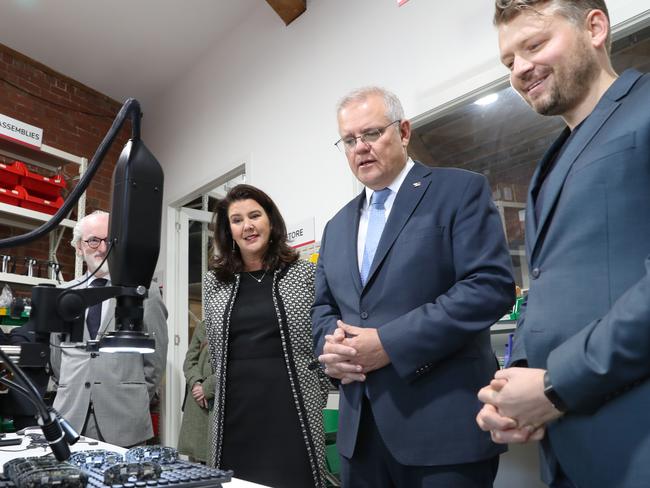
Scott Morrison used Seer’s Melbourne headquarters to announce the federal government’s $1.2bn digital economy strategy in 2021, an acknowledgment of the company’s achievements in building a high-growth start-up that’s already shaking up the healthcare sector through the use of artificial intelligence and clinical wearables for at-home monitoring.
Seer currently delivers home-based epilepsy monitoring, but its technology can be leveraged for broader applications in fields of long-term brain, heart, and respiratory monitoring.
In Australia, its technology reduces waiting times for a full diagnosis from more than two years to a few weeks, saving hospital expenses and freeing up hospital beds in the process.
“Access to home epilepsy diagnostic services gives so many more people the opportunity to improve their healthcare with life changing results,” Professor Cook said.
Brighte
This fintech start-up – dubbed the ‘Afterpay for solar’ – counts Atlassian co-CEO Mike Cannon-Brookes and Grok Ventures among its key venture capital backers, and has raised $375m in public debt and $145m in equity since its launch in 2015.
Led by former Macquarie banker Katherine McConnell, Brighte has helped over 80,000 Australian households get access to solar energy sooner, through a buy now, pay later zero interest payment plan.
The company is aiming to grow to between 300 and 350 staff in the next 12 months, and is targeting the electric vehicle market in 2022.
Last year it hit $1bn worth of applications.
“We will be offering EV finance in other states and territories for Australians across the nation to own an EV and drive the clean energy revolution,” Ms McConnell said.
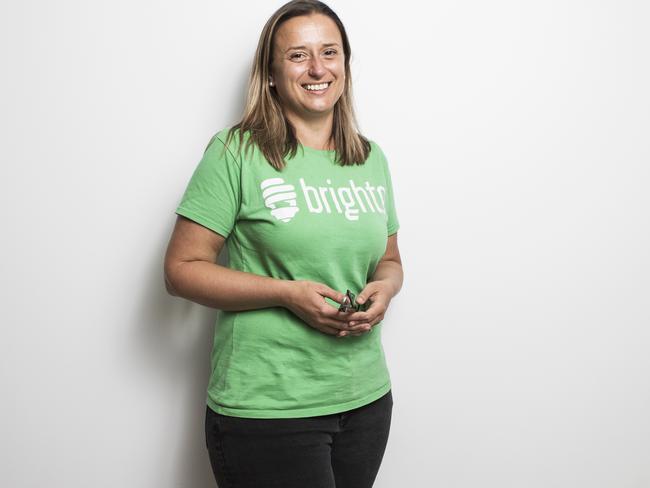
“What we’re seeing now is a re-imagining of the great Aussie dream. It’s not just the house on a quarter acre block with the Hills hoist and a barbecue in the backyard. It’s an electrified house with solar on the roof, an absent gas meter and an EV in the garage — a house run by the sun.”
Employment Hero
One of the hottest software start-ups to emerge from the Sydney start-up scene in recent years, Employment Hero tripled its valuation to $800m in 2021 and is a hot bet to crack the $1bn mark in 2022.
The company, which offers a cloud-based HR platform for small and medium-sized businesses, most recently raised a $140m Series D funding round led by US-based venture capital and private equity outfit Insight Partners, to bolster its growth across southeast Asia and Europe.
Employment Hero has more than 300 staff on its books and has now processed more than $14bn worth of wages, for more than 6000 businesses globally.
It’s now looking to accelerate its growth as small businesses emerge from the pandemic.
“We’ve experienced exponential growth in the past year both locally and overseas. Our success in global markets has instilled in us the confidence to pursue further expansion, with SMEs and employees at the heart of our ambitions,” CEO Ben Thompson said.
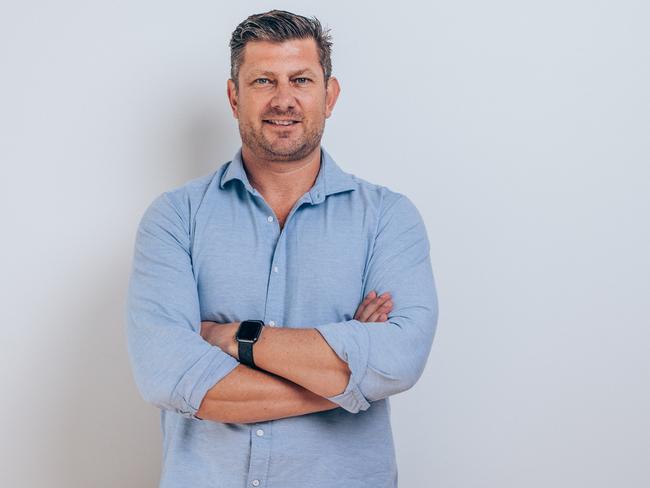
Mr Thompson said that Employment Hero adopted a remote-first model very early on in the pandemic, which held it in good stead over the past year.
“We encourage and empower our people to work where and when it best suits them,” he said.
“The only caveat is now that we’re an international company, we must be mindful of time zones – but remote work and the flexibility it has afforded us has only helped us with this.”
Linktree
Growing its userbase from 8 million in November 2020 to over 19 million today, Linktree’s functionality sounds niche but its co-founders, brothers Alex and Anthony Zaccaria, and their business partner Nick Humphreys, have a bold global vision for what they want to accomplish.
Linktree started life as a simple tool for Instagram users to put all their links in one place, and the Melbourne-based company has continually added new functionality, now allowing creators and influencers to sell through e-commerce stores and grow their online audiences.
Profitable from day one, Linktree has landed $US55.57m in funding to date, most recently raising a $US45m Series B funding round co-led by Patreon and Discord investors Index Ventures and Coatue, an investor in TikTok.
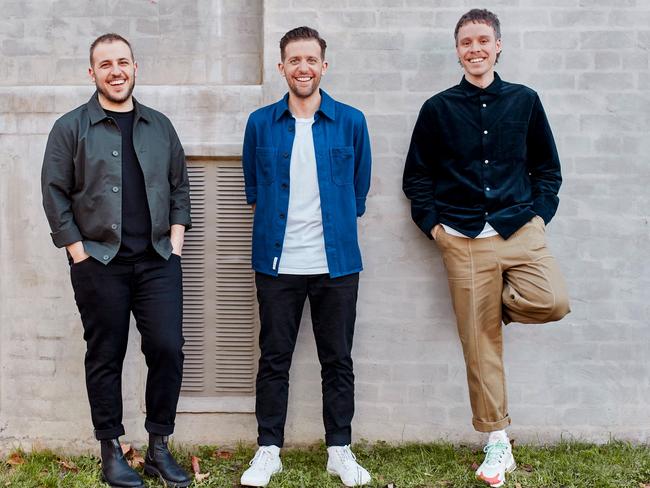
“We’re having an amazing time, and we’re feeling super fortunate,” co-founder Alex Zaccaria said in an interview.
“Things are growing very quickly, we’re really focused on scaling our team in Australia and we’re getting a new user every two and a half seconds. We’re now building a lot more functionality, and focusing on the passion economy.
“There’s never been a better time than now to be a creator and when you zoom out, everybody’s a creator, whether you’re an entrepreneur, or you’ve created a dinner, or you wrote an email. In the future everyone is going to be seen as a creator and using some kind of functionality or platform that enables the work they do in a more simple way.”
Octopus Deploy
Despite its conspicuous name, the Brisbane-based Octopus Deploy had done a stellar job at going under the radar over the last decade, until it raised the biggest deal of any Australian tech start-up in 2021 when it raised $US233m from New York’s Insight Partners in April, the biggest raising by an Aussie firm since Insight put $US250m into email marketing business Campaign Monitor in 2014.
Founded by husband and wife team Paul and Sonia Stovell, Octopus Deploy offers a tool used by software developers to automate the deployment of applications.
The start-up currently has more than 25,000 customers globally, including the likes of Microsoft, NASA, Xero and Disney, and more than 100 staff across Australia, the UK and the US. It’s well on track to officially hit ‘unicorn’ status over the next 12 months.
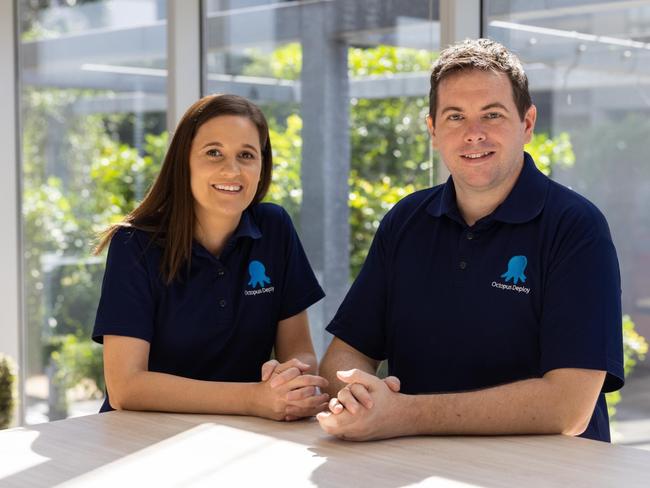
“In 2012 when Sonia and I turned Octopus from a nights-and-weekends project into a business, we wanted to solve deployments for as many companies as we could, but our aspirations were modest and we didn’t have plans to grow particularly big,” Paul Stovell said when announcing the mammoth capital raise.
“I still vividly remember getting the first USD check in the mail and wondering if a bank here could accept it, and trying to work out why US customers keep asking for a W9.”
Insight Partners managing director Michael Triplett said in a statement that the venture capital firm routinely talks to its portfolio companies about the products they use or that their customers are using, and Octopus Deploy came up over and over again.
“The company has flown under the radar, but when you talk to their customers, they are huge fans. It is clear to us that Octopus is the leader in enterprise deployment automation.”


